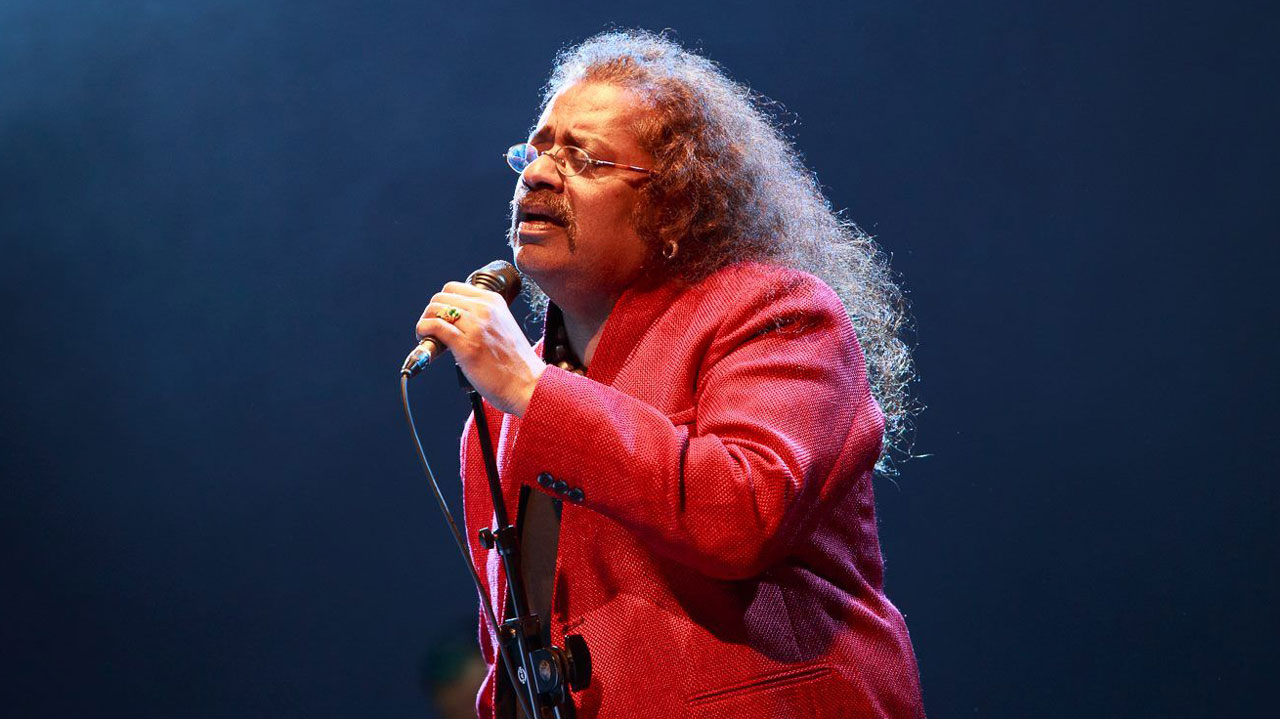Hariharan : The Pioneer of Indian Fusion Music!
#HariharanAnanthaSubramani is prominently known as a #GhazalSinger, He has 30 gazal albums to his credit, but his #Bhajans and film songs too are very 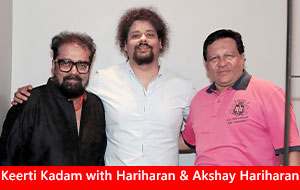 popular. He has touched many lives in over four decades of his career. Additionally he is into fusion music which makes him a versatile singer. In assosiation with musician Leslie Lewis he formed a two member band, Colonial Cousins. The album had two major hit singles, ‘#Krishna’ and ‘#SaNiDhaPa’ (Never Know the Reason) which repeatedly played on #Music channels. Now they have parted ways. He is an established ghazal singer and one of the pioneers of Indian fusion music. #Hariharan has been equally popular with older as well as younger listeners as he keeps experimenting about his singing. Moreover he has sung in multiple languages, which include #Tamil, #Hindi, #Telugu, #Malayalam, #Kannada, #Sinhala, #Bhojpuri, #Bengali, #Odia and #Marathi. There are more than 15000 songs to his credit and that says a lot about his talent and versatility. Recently he released a new Ghazal titled, ‘#Dooriyan….’ and it proves that a good artist can never be away from music. Not that Hariharan ever took a break and at the age of 67 too his voice is loved by the music lovers. He can encapsulate any genre in singing with ease. ‘#PadmaShri’ Hariharan interacted with our Sr Editor Keerti Kadam. Excerpts…
popular. He has touched many lives in over four decades of his career. Additionally he is into fusion music which makes him a versatile singer. In assosiation with musician Leslie Lewis he formed a two member band, Colonial Cousins. The album had two major hit singles, ‘#Krishna’ and ‘#SaNiDhaPa’ (Never Know the Reason) which repeatedly played on #Music channels. Now they have parted ways. He is an established ghazal singer and one of the pioneers of Indian fusion music. #Hariharan has been equally popular with older as well as younger listeners as he keeps experimenting about his singing. Moreover he has sung in multiple languages, which include #Tamil, #Hindi, #Telugu, #Malayalam, #Kannada, #Sinhala, #Bhojpuri, #Bengali, #Odia and #Marathi. There are more than 15000 songs to his credit and that says a lot about his talent and versatility. Recently he released a new Ghazal titled, ‘#Dooriyan….’ and it proves that a good artist can never be away from music. Not that Hariharan ever took a break and at the age of 67 too his voice is loved by the music lovers. He can encapsulate any genre in singing with ease. ‘#PadmaShri’ Hariharan interacted with our Sr Editor Keerti Kadam. Excerpts…
Your new Ghazal ‘Dooriyan…’ is out now. What’s your views on it?
Ghazal is my favourite singing genre. Talking about Dooriyan it’s a well crafted song. It’s a cross-country collaboration that depict emotions of a heartbroken person in love. I was approached to sing it by Kailash Gandharv, a music composer from Ujjain. He sent me the composition. I suggested a few changes. Then the lyrics by Madan Pal though very good but were too many. There were too many stanzas. So I and my co-singer Sadhana Jejurikar decided on which stanzas to keep and which each one of us to recite. My son Akshay has produced this gazal and while he professionally managed the arrangements and dubbing etc, has put in his inputs which will help the song to reach out to the younger generation. Instead of 4 by 4, (each measure contain four quarter note beats) he has recorded it in 7 by 8. The soundscape by him is modern which sounds like today’s song. He does have musical instinct which helped the song to pan out beautifully. I and Sadhana dubbed it and now it’s in front of you and hopefully everyone will like it.
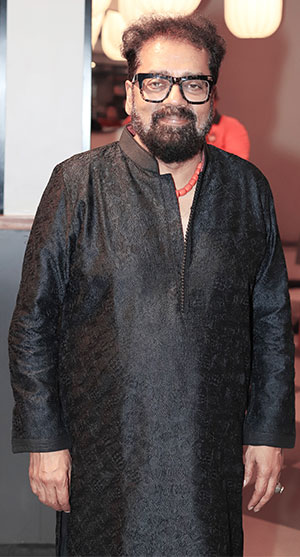 Hariharan, in his early career, has cut several successful Ghazal albums, writing most of the scores himself. One of Hariharan’s first ghazal albums was ‘Aabshar-e-Ghazal’ with legendary Asha Bhosle which went gold in sales. His another popular Ghazal album was Gulfam which not only hit double platinum in sales but also fetched Hariharan the Diva Award for the Best Album of the Year in 1995. The other major ghazal albums by him are Hazir, Jashn, Halka Nasha, Paigham, Kaash and Lahore Ke Rang Hari Ke Sang. Hariharan has also worked with tabla maestro Zakir Hussain on his album Hazir. He has A R Rahman as a fan and both, for the first time, worked together for ‘Roja’ for a Tamil song ‘Thamizha Thamizha’.
Hariharan, in his early career, has cut several successful Ghazal albums, writing most of the scores himself. One of Hariharan’s first ghazal albums was ‘Aabshar-e-Ghazal’ with legendary Asha Bhosle which went gold in sales. His another popular Ghazal album was Gulfam which not only hit double platinum in sales but also fetched Hariharan the Diva Award for the Best Album of the Year in 1995. The other major ghazal albums by him are Hazir, Jashn, Halka Nasha, Paigham, Kaash and Lahore Ke Rang Hari Ke Sang. Hariharan has also worked with tabla maestro Zakir Hussain on his album Hazir. He has A R Rahman as a fan and both, for the first time, worked together for ‘Roja’ for a Tamil song ‘Thamizha Thamizha’.
Given the pop culture ruling charts, do you think the youngsters like to listen to Ghazals?
Of course. I strongly believe that even youngsters are interested in Ghazals. I was in Delhi for a concert just a few months back and there was a crowd of around 15000 people which included 10000 youngsters. Even in my Bhopal Ghazal concert there were majority of younger audience in 5-6 thousand crowd. In Indore concert too similar thing was observed. So I know for sure that plenty of youths follow ghazal and it’s a good sign for this genre. In Mumbai’s NCPA auditorium too there are 2000 people where good percentage of youngsters are present. Ghazals were popular earlier and it’s popular even today despite onslaught of other popular songs. As long as there is love in the world, and for that matter break up too, Ghazal will exist.
But, I think that today’s music is short lived. Most of the songs which are considered popular are forgotten in no time. Today’s songs are made popular with Hammering. If a song is played for 10000 times, it obviously is going to get noticed. But that’s not Real popularity. The songs are forcefully thrown down the throat of the listeners. I believe in versatility. I am eager to learn new points of views. I am approached by new composers, some of them are from rural areas too. I love folk music. I tell them that I am in your hands for the next three hours and my slate is clean now. Treat me like your student. I believe in following the composers’ vision because they know the idea behind it. Frankly I befriend them so that they are not in awe to work with me. I believe in the end product being good. I tell them that it’s up to you to make me sing the way you have visualised the song. I have learnt this from great singers like Lata Mangeshkar, Asha Bhosle etc who used to surrender before the composer’s vision and sing as per their requirements. In the process you drive away monotony.
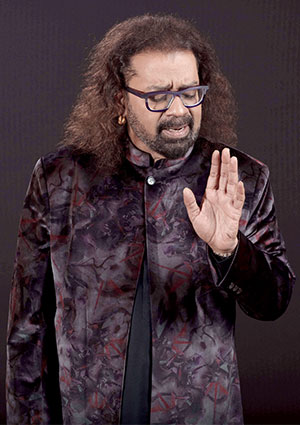 Hariharan and late Gulshan Kumar recorded Hanuman Chalisa under the T-Series label which crossed three billion views mark on YouTube. It’s the first first devotional song in the world to do so.
Hariharan and late Gulshan Kumar recorded Hanuman Chalisa under the T-Series label which crossed three billion views mark on YouTube. It’s the first first devotional song in the world to do so.
How do you feel for this feat?
Gulshan Kumar was very close to me. The rendition of Hanuman Chalisa was very dear to me and him. I think Hanumanji is more popular (laughs). Gulshan bhai used to urge me to sing more devotional songs and bhajans. A lot of people across country tell me that Sir, we listen to your Hanuman Chalisa everyday. Again it’s considered auspicious as it is played at the inaugural events too.
What difference do you find in yesteryear and today’s songs?
Today, octave has become very high. Whatever the emotion, love, pain or anger, the song is sung at high pitch. I fail to understand the reason behind it. Maybe when a song is recorded at high octave, the instruments too are played at high octave, resultantly the vibrations are very high. And everything put together the song sounds catchy. I wonder why today’s singers sing in high octave? Moreover most of the songs have doctored voices.
Taking this further, do you think whether it’s justifiable for film stars to sing?
I personally can not comment on that. I have just acted in a Malayalam film (smiles). But 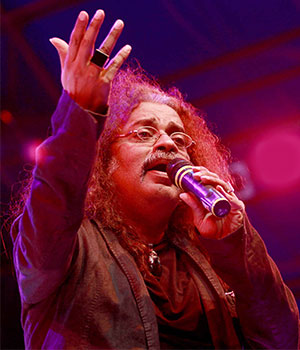 in earlier times there used to be singing stars. You were offered acting assignment only if you knew singing. But in the changed scenario I think it’s okay for a film star to sing a song here and there. Some actors have passion for singing and if they are good at it, then why not? See, stars are extremely popular and even if they sing not that brightly, their fans will forgive them. If the song suits the situation and his or her voice supports that situation, then the star is justified. Also some sing for fun, so it is okay if film stars try to sing in films or otherwise. But I think film music is not music per say. It is for media, i.e. Films.
in earlier times there used to be singing stars. You were offered acting assignment only if you knew singing. But in the changed scenario I think it’s okay for a film star to sing a song here and there. Some actors have passion for singing and if they are good at it, then why not? See, stars are extremely popular and even if they sing not that brightly, their fans will forgive them. If the song suits the situation and his or her voice supports that situation, then the star is justified. Also some sing for fun, so it is okay if film stars try to sing in films or otherwise. But I think film music is not music per say. It is for media, i.e. Films.
At the start of his career, Hariharan did the concert circuit and also performed on TV. He sang for a number of TV serials like Junoon. He is a trusted singer for A R Rehman because both collaborated for many films, including Muthu, Minsara Kanavu, Jeans, Indian, Iruvar, Guru, Enthiran, Sivaji to name a few. Apart from outstanding singer Hariharan is a composer too and have composed for a polish film ‘No Means No’. Hariharan is the recipient of the coveted National Award, twice. He won it for a the song ‘Mere Dushman Mere Bhai’ from ‘Border’ and second one was the song, ‘Jiv Rangla’ from the marathi film ‘Jogwa’.


